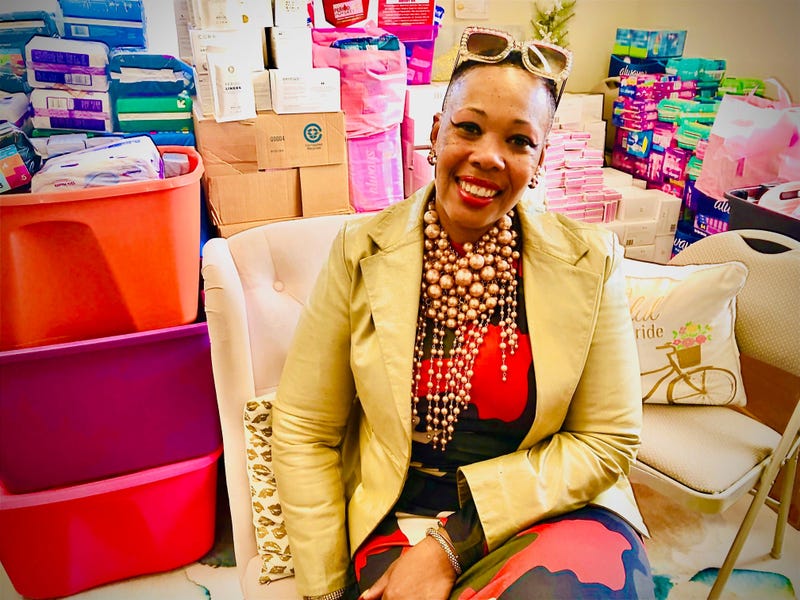
“I think this was a God-given gift,” she said.
The Wynnefield native and self-proclaimed “church girl” founded No More Secrets, a nonprofit that teaches African-American youth about consent and sexuality. She said most messages around sex in black communities are one-note:
But Medley changed the tone of the conversation.
“Parents are not used to talking about sex,” she explained. “As long as consent and age are appropriate, sex can be pleasurable.”
But after she opened the door to a real dialogue around sex and sexuality, Medley exposed a secret crisis among young women: Many cannot afford feminine hygiene products.
“It was a bombshell to me,” she admitted. “I told them, ‘Let me Google it and I’ll find you some resources.’ ”
Medley quickly discovered that tampons, maxi pads and other feminine hygiene products are not covered by SNAP, Medicare, Medicaid or other public benefits plans. In fact, in some states other than Pennsylvania, feminine hygiene products are taxed at the luxury rate.
Medley immediately knew she had to take action.
“Girls were telling me they were using socks and newspapers and gloves and stuffing from stuffed animals,” she said. “They were using birth control nonstop just to deal with something that is natural.”
So Medley started a feminine hygiene bank, collecting donated products from the community. She then distributed them to menstruating girls and women for free. As she continued to deliver the items, the bank grew and grew, eventually collecting three months-worth of products for 150 women a week.
“People have hung up on us, they closed doors in our face,” Medley recalled. “But if we don’t talk about it, how can I tell you that I cannot access it?”
For women who lack access, she said it has become a severe health issue. Toxic shock syndrome — bacterial infections caused by wearing a tampon for too long — can sometimes occur and result in serious consequences.
“Girls have told me they are wearing tampons for days. Then there’s vaginal infections; they’re getting cervical cancers.”
Her bluntness has softened people’s perspectives.
Medley took her awareness efforts to the first annual National Period Day in October in Washington, D.C. She also lobbied in Harrisburg to expand “menstrual equity” — access to feminine products in public spaces — to also include period poverty — access to products independently.
“What do they do when they are not at school, or during the summers or on the weekends?” she asked.
“She had to sit on wads of toilet tissue and she was so nervous she got a nine-(hundred)-something instead of the 1,000-plus she needed to get a scholarship.”
With the help of her daughter, Nya, Medley launched an end to period poverty campaign, called Period or Not Respect the Dot. The campaign aims to normalize women’s menses so more people know about it and understand that it is a regular part of life.
The initiative is growing, allowing her to ship feminine hygiene products nationally and beyond.
“It’s been a ripple effect,” said Medley, who has a master’s degree in human sexuality. “This is a sexuality awareness issue that we should all be able to talk about.”
Medley hopes to have hubs in cities across the country where the public can get free tampons, pads, condoms, and information on consent and sexuality.
“Nonjudgmental spaces where people can come,” she added, “where they can be safe and have these conversations.”
For now, she hosts events like Cupcakes and Crucial Conversations, where she talks about consent and sexuality with teen boys and girls. She also speaks to groups and educates parents on how to speak to their kids, opening the door to a better dialogue within families.
Medley is changing the game by giving women dignity.
“I just feel blessed to be able to do it.”
___
